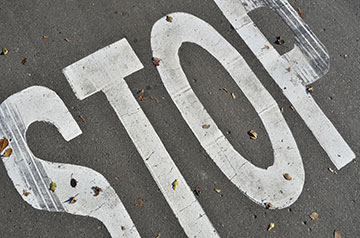 There is, reputably, an old Hemingway suggestion: That you should stop your day’s writing right in the middle of some plot excitement or crisis. It’s not that you can’t go on. The point is you can instantly go on when you return to your work the next day. Instead of staring at your text and asking yourself whatever should happen, you know instantly what that next event is, and you insert yourself right in the flow of your narrative.
There is, reputably, an old Hemingway suggestion: That you should stop your day’s writing right in the middle of some plot excitement or crisis. It’s not that you can’t go on. The point is you can instantly go on when you return to your work the next day. Instead of staring at your text and asking yourself whatever should happen, you know instantly what that next event is, and you insert yourself right in the flow of your narrative.
It is useful advice, and I’ve followed it any number of times. But I would frame it in a slightly different way. When you feel you have been writing well, it is always wise to go back and rewrite what you have done. You will inevitably discover that it wasn’t quite that good—there will be gaps, glitches and stumbles—and by working on them you can enrich the character, situation, the story as a whole. When rewriting that way you are not stretched so tightly about moving your plot forward, and you can be more leisurely in the subtler aspects of your story.
The energy of your text often comes from the first draft. The quality of your work comes from the many subsequent drafts.
3 thoughts on “Stop your day’s writing when?”
In my favorite teaching video (hard to get now) of Roald Dahl he told the children this Hemmingway quote in this way (to the best of my recollection, but I saw it at least 20 times), “when it is going good, stop. Better not to come back to a blank page.” He advocated writing in his little garden shed (very unglamorous, but practical) and then going about life without talking about your writing. It was a terrific video. I have tried so hard to get a copy but it is not on DVD. And I would guess the company is out of business and the Dahl foundation made someone who put it on Youtube take it down!!!
Wonderful post of yours with extra ideas. Just saw Anne Lamott talk about writing and her ideas on how to get yourself to do your work.
That last line is perfect, Avi!
Good advice. Thank you.